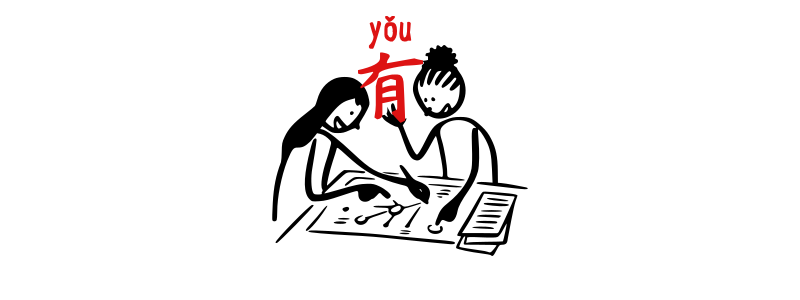Grammar Point:
The “you sentence” is known as 有字句 yǒuzìjù in Chinese. The word 有 yǒu serves multiple functions, including expressing estimates and constructing comparative sentences, which will be the focus of this article. you sentence
Structure
S + 有 yǒu + Number
When you are trying to express an approximation or rough estimate of a number or value, you can use this structure.
他有一米八高他有一米八高
He’s 180 cm. (I think)
他有三十多歲他有三十多岁
He is over 30 years old. (I think)
你房間有我5個房間大吧你房间有我5个房间大吧
Your room is probably five times bigger than mine.
With 有 and Without 有
他有一米八高他有一米八高
He’s 180 cm. (I think)
他一米八高他一米八高
He’s 180 cm. (I know)
這塊肉有一斤重这块肉有一斤重
This piece of meat weighs 600g. (guessing)
這塊肉一斤重这块肉一斤重
This piece of meat weighs 600g. (for sure)
Comparative Sentence
A + 有 + B + (這麼/这么, 那麼/那么) + Adj.
The word 有 yǒu can be used in comparative sentences. The good news is that in Chinese, 那么 nàme and 这么 zhème serve the same function, so there’s no need to distinguish between them.
你的手機有我的(手機)那麼貴嗎?你的手机有我的(手机)那么贵吗?
Is your phone as expensive as mine?
他家的廁所有我家的房間這麼大!他家的厕所有我家的房间这么大!
His washroom is as big as my bedroom.
學中文有學英文那麼難嗎?学中文有学英文那么难吗?
Is learning Chinese as difficult as learning English?
他有我這麼愛你嗎?他有我这么爱你吗?
Does he love you as much as I do?
- Using Yǒu to Express Existence (HSK 1)
- Existential Subject with 有 yǒu (HSK 2)
- Using Yǒu to Express Attachment (HSK 5)


